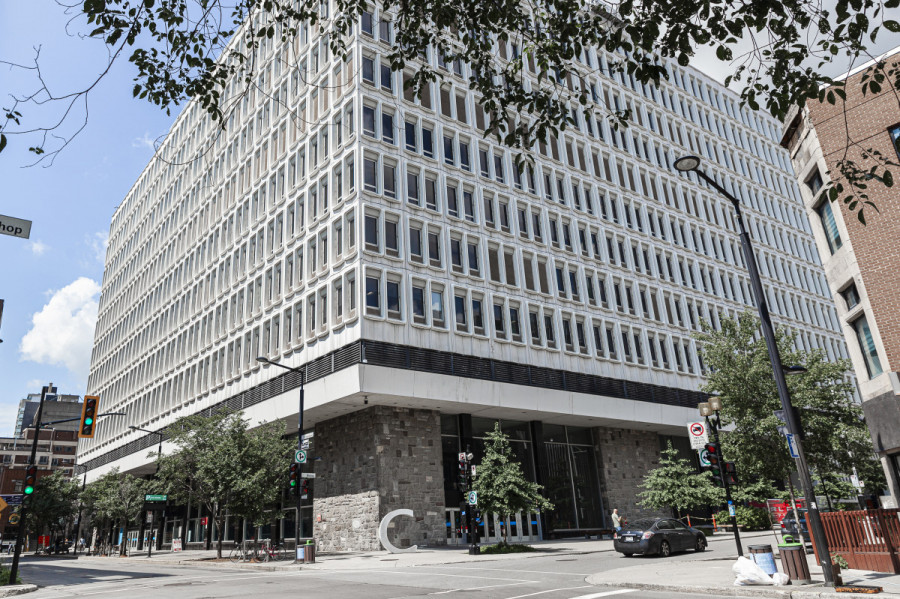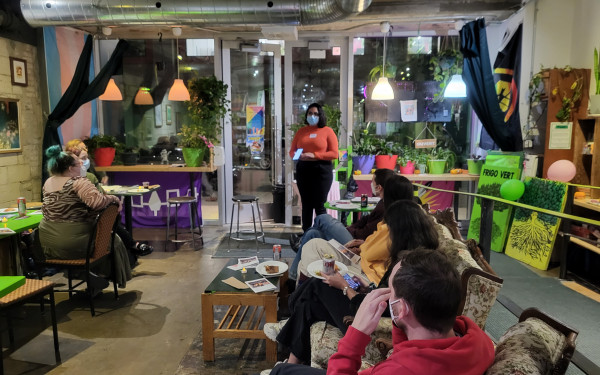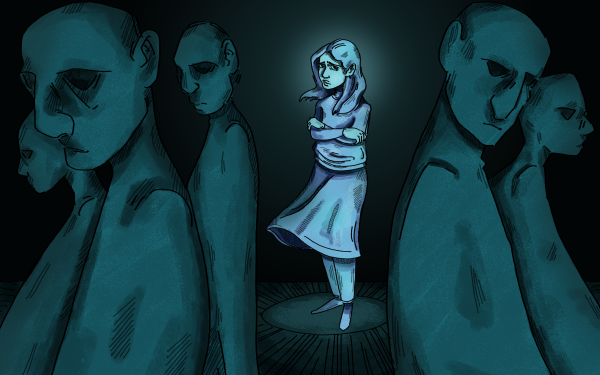“Enough is Enough”: Students and Workers Boycott Sexual Violence Committee
Student Unions Withdraw From Concordia’s Standing Committee on Sexual Misconduct and Sexual Violence
Content warning: this article contains themes of sexual violence.
In March 2014, a Chinese-Italian Concordia student, who went by the pseudonym Mei-Ling, became the victim of sexual violence and racial abuse in student government.
While using one of the computers in the Arts and Science Federation of Associations office, where she worked as an executive, Mei-Ling found conversations about her between two of her male coworkers. The men made overtly sexual and racist statements about her in messages over Facebook.
When she approached the dean of students about the harassment, Mei-Ling was told there was nothing Concordia could do because the conversations were private. She was later referred to the Center for Research-Action on Race Relations, through which she filed a complaint to the Quebec Human Rights Commission. ASFA and Mei-Ling reached a settlement in 2015.
Following the settlement, ASFA began setting up its Task Force to Eliminate Racial and Sexual Harassment and Violence. After years of incremental changes to its harassment policy, thanks in large part to student activists, the federation has been able to take matters into its own hands with relative ease—and without the direct oversight of the university.
Over the past few years alone, students, staff, and faculty have reported being victims of sexual violence on campus. In response to the horrors endured by victims, student and staff unions have made a decisive move towards taking matters into their own hands.
On Oct. 5, representatives from the Concordia Student Union, the Teaching and Research Assistants at Concordia Union, and the Graduate Students’ Association announced they would be withdrawing from Concordia’s Standing Committee on Sexual Misconduct and Sexual Violence.
Standing in front of the Hall building, speakers took turns denouncing the university’s inadequate support for survivors of sexual violence and the absence of a victim-centred approach. Over 45,000 students and workers will be pulled out of the standing committee as a result of this decision.
CSU Academic and Advocacy Coordinator Asli Isaaq, who previously served as a member of ASFA’s Task Force to Eliminate Racial and Sexual Harassment and Violence, spoke on behalf of the largest student body exiting the committee.
“The current policy is inadequate to handle allegations against people in a position of power, and it is not actually stand-alone or survivor-centric,” said Isaaq. “While it mentions complaints against faculty and staff, the lack of clarity on the latter type of cases shows it was never designed to effectively address them.”
“We find [students’] demands and recommendations have been ignored, and that abuses of power in the university continue without transparency or accountability.” — Margot Berner
Faculty-student sexual violence has been a repeated problem at Concordia. In 2018, a former student using the pseudonym Alya filed a complaint to the Quebec Human Rights Commission. She faced repeated sexual harassment from a professor in Concordia’s philosophy department from 2008 to 2009.
When Alya spoke to the chair of the philosophy department, she was told her discomfort was not worthy of any intervention. She spoke to the director of Concordia’s Office of Rights and Responsibilities, who told her nothing else could be done and that she shouldn’t speak on her assault further.
The philosophy department has warranted much criticism from teaching assistants as well. TRAC had to fight for changes to be made so that one professor could only work with male TAs, considering the long list of accusations against him by women.
Nelson Graves, a TRAC delegate for the philosophy department, said lots of work is left to be done. “We’ve been working on a campaign over the past year to investigate and to allow our TAs to not work with those who have been accused of sexual violence,” he said.
Recently, Graves added, the university assigned an international student as a TA to that particular professor. She was not notified by anyone in the faculty about the allegations until TRAC stepped in.
Concordia Spokesperson Vannina Maestracci responded to the unions’ departure from the standing committee. “The Chair of the Standing Committee reached out to the student representatives to learn more and scheduled a meeting with them next week,” she said. “We hope to be able to discuss their concerns and find a way forward.”
Maestracci said the policies and procedures implemented through the standing committee “are reviewed at defined intervals, while support services, approaches and responses to sexual violence, and training are updated and revisited continually.”
Justice for survivors of sexual violence within the Concordia community requires major systemic change, said Margot Berner, a former student representative at the standing committee. “We find [students’] demands and recommendations have been ignored, and that abuses of power in the university continue without transparency or accountability,” they said.
“This lack of transparency sends a message of impunity through the continued unexplained presence of an aggressor in our university,” Berner added about the philosophy professor’s continued employment at Concordia.
Besides Berner’s experience with the CSU, they were also a representative with ASFA. They were one of the leading forces behind the process of ensuring improvements to the federation's sexual violence policy.
Payton Mitchell, ASFA’s communications coordinator, was also at the conference outside the Hall building, voicing her support for the unions and associations leaving the committee. She hopes this pullout will let the groups figure out their own systems tailored to their specific needs.
“ASFA looks forward to working closely with the GSA, TRAC, and the CSU to finalize and expand our student-led sexual and racial violence reporting and accountability process,” Mitchell said.







